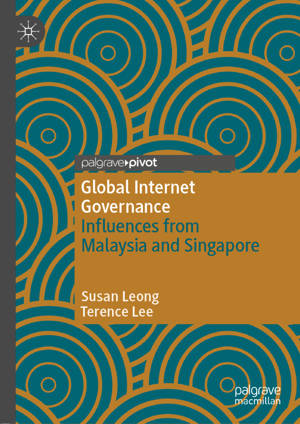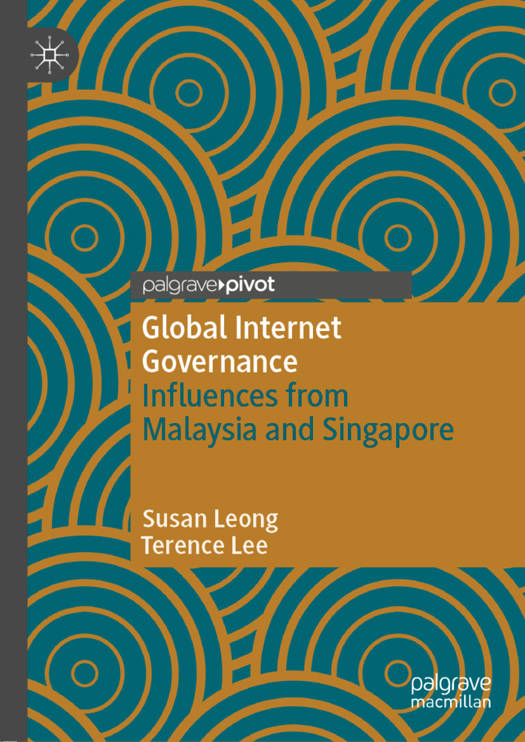
Door een staking bij bpost kan je online bestelling op dit moment iets langer onderweg zijn dan voorzien. Dringend iets nodig? Onze winkels ontvangen jou met open armen!
- Afhalen na 1 uur in een winkel met voorraad
- Gratis thuislevering in België vanaf € 30
- Ruim aanbod met 7 miljoen producten
Door een staking bij bpost kan je online bestelling op dit moment iets langer onderweg zijn dan voorzien. Dringend iets nodig? Onze winkels ontvangen jou met open armen!
- Afhalen na 1 uur in een winkel met voorraad
- Gratis thuislevering in België vanaf € 30
- Ruim aanbod met 7 miljoen producten
Zoeken
Global Internet Governance
Influences from Malaysia and Singapore
Susan Leong, Terence Lee
Hardcover | Engels
€ 76,95
+ 153 punten
Omschrijving
This book addresses the complex issue of global Internet governance by focusing on its implementation in Malaysia and Singapore. The authors draw insights, identify, revisit and flesh out the discourses circulating since the 1990s and pitch them against global internet governance concerns.
Internet governance, thought managed domestically/nationally, is a global issue. It is at the heart of how the internet works yet remains hidden within the 'black box' of governance language. While several scholars have entered the fray in recent years, especially in the past decade, very few of them are aware that the Malaysian and Singaporean governments have in fact been at the forefront of Internet regulatory strategies from the early 1990s. The book identifies, revisits and gives flesh to some of the discourses circulating in Southeast Asia at the time and pitches it against current governance concerns.
Readers of this book will understand how and why Malaysia and Singapore are important contributors to the issue of internet governance. This knowledge will inform a depth of understanding of why China is keenly seeking to stake its demands on internet governance and sovereignty, and likely American and global responses. Readers will also appreciate how and why the regulation of the Internet has been and will remain a site of contestation and control.
Internet governance, thought managed domestically/nationally, is a global issue. It is at the heart of how the internet works yet remains hidden within the 'black box' of governance language. While several scholars have entered the fray in recent years, especially in the past decade, very few of them are aware that the Malaysian and Singaporean governments have in fact been at the forefront of Internet regulatory strategies from the early 1990s. The book identifies, revisits and gives flesh to some of the discourses circulating in Southeast Asia at the time and pitches it against current governance concerns.
Readers of this book will understand how and why Malaysia and Singapore are important contributors to the issue of internet governance. This knowledge will inform a depth of understanding of why China is keenly seeking to stake its demands on internet governance and sovereignty, and likely American and global responses. Readers will also appreciate how and why the regulation of the Internet has been and will remain a site of contestation and control.
Specificaties
Betrokkenen
- Auteur(s):
- Uitgeverij:
Inhoud
- Aantal bladzijden:
- 105
- Taal:
- Engels
Eigenschappen
- Productcode (EAN):
- 9789811599231
- Verschijningsdatum:
- 24/11/2020
- Uitvoering:
- Hardcover
- Formaat:
- Genaaid
- Afmetingen:
- 148 mm x 210 mm
- Gewicht:
- 290 g

Alleen bij Standaard Boekhandel
+ 153 punten op je klantenkaart van Standaard Boekhandel
Beoordelingen
We publiceren alleen reviews die voldoen aan de voorwaarden voor reviews. Bekijk onze voorwaarden voor reviews.











